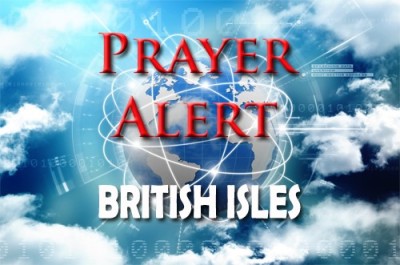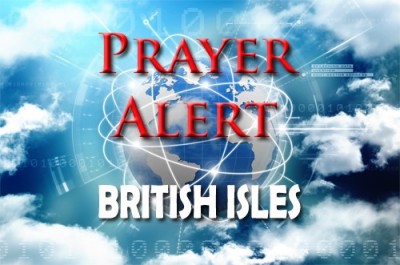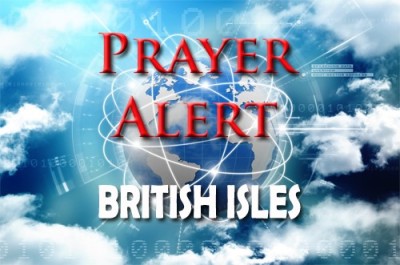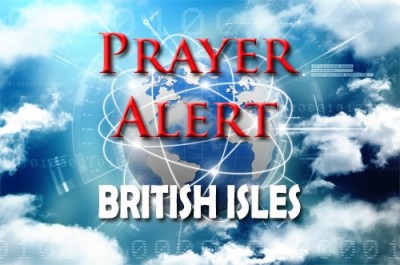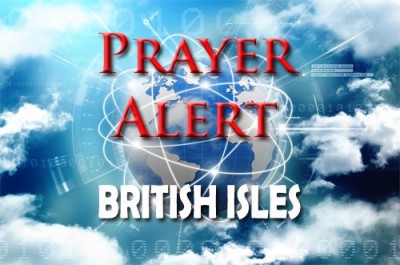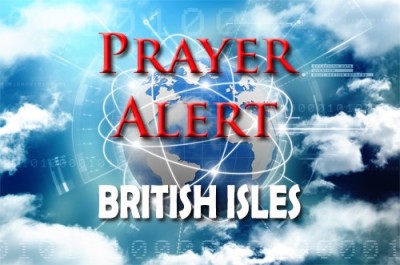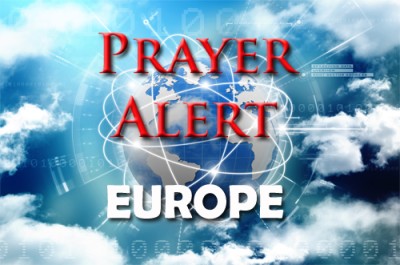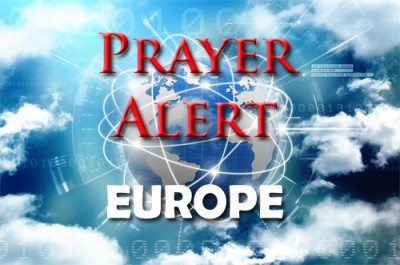Queen moved during D-Day memorial event
07 Jun 2024Queen Camilla was visibly moved during the 80th anniversary of D-Day commemorations in Portsmouth, where she joined King Charles and Prince William. The event was deeply emotional, particularly when Navy veteran Eric Bateman shared his harrowing experiences from Utah Beach. Both Camilla and Charles were seen fighting back tears as they listened to the veterans' stories. The King praised the courage and sacrifice of the wartime generation, while Prince William honoured the bravery of those who participated in D-Day and their enduring legacy.
Over twenty Christian leaders, including former Archbishop of Canterbury Rowan Williams, have urged UK political leaders to view taxes as a societal benefit rather than a burden. In an open letter organised by the JustMoney Movement, they called on Rishi Sunak, Keir Starmer, and Ed Davey to promote fairer taxation, emphasising its role in funding public services and addressing inequality. They argue that the wealthiest should contribute more equitably, aligning with biblical principles of justice and community responsibility.
A recent ransomware attack by the Russian cybercriminal group Qilin has significantly impacted pathology services at several major London hospitals. The attack disrupted NHS services, leading to the cancellation or redirection of procedures and operations. Ciaran Martin, former chief executive of the National Cyber Security Centre, explained that these criminals, seeking financial gain, operate freely from within Russia and have a history of targeting various organisations globally. This attack, involving the shutdown of systems rather than data theft, has severely affected healthcare operations, reflecting the serious nature of such ransomware incidents.
Another killing on London underground
07 Jun 2024A young man in his 20s was tragically stabbed to death outside a London Underground station near Edgware Road. The incident, on 5 June, began with a fight during which a gunshot was also reportedly heard. Despite efforts by police officers and paramedics to revive him, the victim died at the scene. Three men have been arrested in connection with the incident and remain in custody. Police are conducting urgent inquiries and have established multiple crime scenes.
Madeleine suspect gives lawyer fist bump
07 Jun 2024Christian Brueckner, a German national with a history of criminal offences, including child sexual abuse, emerged as a key suspect in the disappearance of Madeleine McCann in Portugal in 2007. His presence in the area at the time and his criminal record, particularly related to crimes involving children, had led investigators to focus on him. Despite extensive investigations and public interest, conclusive evidence linking him directly to McCann's disappearance remains elusive. However, authorities continue to pursue leads diligently. The case highlights the complexities and challenges of high-profile missing persons cases. While Brueckner's notoriety as a suspect generates speculation, the search for truth and justice persists as the priority for resolving such cases and providing closure to the families involved. He is reported to have fist bumped his lawyer as he arrived in court earlier this week.
Lib Dems pledge free personal care for adults
07 Jun 2024The Liberal Democrats have proposed free personal care for older or disabled individuals at home, alongside increased pay for care workers, aiming to alleviate the hospital crisis and enable people to remain in their homes. This plan, funded by reversing tax cuts for big banks, seeks to address the estimated £2.7bn cost by 2028-29. Independent experts suggest potential costs may exceed initial estimates. The party also aims to tackle the care worker shortage by introducing a carer's minimum wage and establishing a Royal College of Care Workers. Leader Sir Ed Davey, drawing from personal experience as a carer, emphasised the importance of this issue. The policy aims to support independence and dignity for individuals in need of care, echoing the system in Scotland. While welcomed by industry bodies, concerns remain about funding sufficiency and staffing shortages. Labour and the Conservatives have also proposed reforms to address healthcare and social care challenges.
Ukraine: Biden, China not to attend peace summit
07 Jun 2024Joe Biden will not be at the Ukraine peace summit in Switzerland on 15 and 16 June; instead, vice-president Kamala Harris and national security advisor Jake Sullivan will attend. The decision comes despite Biden’s attendance at France's D-Day anniversary celebrations and a G7 meeting in Italy in the next few days; on 15 June he will be at a Hollywood fundraising event. However, the White House stated that no other national leader had done more to support Ukraine’s sovereignty and peace. Over a hundred countries have promised to attend the summit, but some key states - notably China - have decided not to do so because Russia has not been invited. Volodymyr Zelensky criticised these decisions, and stressed the importance of Biden's presence for influencing other leaders. Meanwhile, Russian dissident Boris Kagarlitsky has been sent back to prison after only two months of freedom for his continuing opposition to the war. See
Fake news ahead of EU elections
07 Jun 2024Ahead of the EU and UK elections, false claims about immigration are spreading, particularly on social media. One Facebook post says that nearly 97% of Spain’s minimum basic income recipients are immigrants. In reality, official data show that 82.4% are Spanish nationals and only 17.6% foreigners. Elsewhere, Dutch far-right activist Eva Vlaardingerbroek has said that most residents of Amsterdam, Brussels, and London are immigrants, whereas official statistics contradict this. Immigration remains a significant issue in Europe, influencing voter sentiment and political strategies. A recent poll reveals that half of Europeans disapprove of the EU’s migration policies, wanting stricter border controls. Some national governments have adjusted their immigration policies in response.
